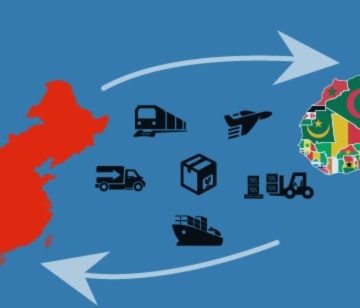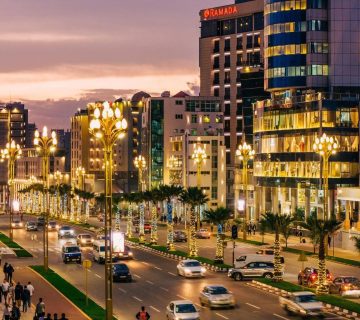The recent Africa-India Key Maritime Engagement (AIKEYME), a multinational naval exercise co-hosted by India and Tanzania in Dar es Salaam, has implications beyond the exercise’s immediate goal of strengthening regional coordination to tackle common maritime challenges. AIKEYME also positions India as a viable additional or alternative security partner for African nations at a time of bipolar rivalry between the US and China. As India is formally independent from any major power bloc as part of the non-aligned movement, its strategic autonomy could be appealing in a potential security partner if alignment with either the US or China seems to send an aggressive message to the other.
AIKEYME’s Shared Maritime Security Goals
In late April 2025, the Indian Navy and the Tanzanian People’s Defense Force co-hosted AIKEYME, which, in addition to India, involved nine African coastal nations: Comoros, Djibouti, Kenya, Madagascar, Mauritius, Mozambique, Seychelles, South Africa, and Tanzania. AIKEYME’s scope included intelligence sharing, and harbour and sea based exercises, such as Visit Board Search and Seizure training. Its goal was to develop and improve coordinated counterpiracy and counterterrorism efforts in the Indian Ocean. Counterpiracy and counterterrorism are shared high-priority concerns for both India and African coastal nations. The last two years have seen a rise in piracy in the Indian Ocean, particularly around the Bab-el-Mandeb Strait; Yemen’s Houthi insurgents have attacked over 100 vessels. 95% of India’s trade volume passes through the Indian Ocean. Commercial trade that has to be re-routed out of East African ports further South has a direct cost to exporters of approximately $3 billion. This causes significant market delays, contract re-negotiation, and supply chain issues with India’s trade with Europe, detrimentally affecting the national economy. East African coastal nations are also reliant, to differing extents, on port traffic and related services, but no single African nation has the capacity to independently tackle these challenges laid out in the 2050 Africa Integrated Maritime Strategy, which makes outward collaboration essential. In 2023, India declared itself the Indian Ocean’s Net Security Provider and initiated the Maritime Heads for Active Security and Growth for All in the Region (MAHASAGAR) strategic vision, which situates itself as a key leader in naval diplomacy in the region. AIKEYME is another building block in their cooperative approach.
Broader Implications for Recalibrating Security Partnerships Amid US-China Rivalry
The timing of AIKEYME, whether or not intentional, makes the exercise particularly significant as it signals the potential to recalibrate security partnerships in Africa. The shifting global world order, the implications of which have been exacerbated by the escalating US-China trade war, has led to some tension in the event that emerging or middle power nations are perceived as choosing one side or the other. For example, in May 2025, the current chairman of the U.S. Senate Foreign Relations Committee, James Risch, stated that “Relying on leaders who embrace Beijing so openly is an error. It’s time to reassess our relationship with Kenya and others who forge tight bonds with China.” While Kenyan President William Ruto responded and emphasised Kenya’s sovereign right to align with multiple global powers, Risch’s statement certainly reflects a common zero-sum understanding of the international system. Aligning with either China or the US may be an unappealing prospect if it is perceived as sacrificing a partnership with the other.
By comparison, engaging with India is a less loaded security decision and avoids the crossfire of great power rivalry. While India engages economically with both the US and China, and collaborates with the US on global security, climate change, and technology, India is not an ally of either global power. AIKEYME is significant because it establishes India as a credible and non-exploitative security partner for the region without the same repercussions associated with relying on the US or China.
A United Global South
The term AIKEYME is not only an acronym; it is also derived from the Sanskrit word for unity. Sanjay Seth, India’s Minister of State for Defence also quoted an African proverb during the exercise: “If you want to go fast, go alone; if you want to go far, go together.” India’s clear emphasis on collaboration and a united front reflects the nation’s broader foreign policy focus on standing with the Global South, with which they share a history of resistance against suppressive colonial regimes.
For instance, in 2023, India advocated for the African Union (AU) to be made a permanent member of the G20, the group of the world’s 20 leading economies, as, according to Indian Prime Minister Modi, it would “strengthen the voice of the Global South.” This desire to reform international institutions in favour of the Global South was once again reiterated by Modi at the 17th BRICS Summit, held in July 2025, during which he suggested that international organizations created in the 20th century do not adequately represent the interests of the Global South.
In Modi’s 2018 speech at the Parliament of Uganda articulating the Kampala Principles, he stated that India intends on “developing together as equals” with African nations. This vision of a mutually beneficial relationship sets India apart from China, which has been accused by some of creating dependent “neo-colonial” relationships with African nations. While China is generally recognized as part of the Global South, it already holds significant influence within existing global governance structures. India, on the other hand, appears to prioritize countries that have traditionally been underrepresented or excluded from these platforms. Therefore, engaging with India is a nod towards a more multipolar, rather than a bipolar, world in which African nations, as part of the Global South, have a significant seat at the table.
Limitations
While India enjoys being Africa’s third largest trading partner, after China and the EU, but before the US, its ability to be a viable security partner alternative is hindered by its relatively limited military capacity. China’s naval fleet outnumbers that of India by three times. The US’ military is only slightly larger than the Indian military, but is significantly more technologically advanced. However, this is not a gap that would be impossible to close in the future, and engagement like AIKEYME lays a strong groundwork in India’s favour for future alternative security partnership decisions by African leaders.
Looking Forward
If India is to solidify influence and relationships built on trust in the region, it must continue to participate in, and lead, shared, tangible, efforts, which deliver on its maritime security vision – beyond rhetoric. This could manifest as additional (or regularly scheduled) collaborative exercises, pooled information sharing and databases regarding international waters, naval diplomacy between security heads, or quotas for invitations to be extended to African officers to attend Indian naval training.
These efforts will take on a deeper meaning in the context of the shifting world order. AIKEYME exhibits the potential for a permanent security dialogue between India and the region, or even a formal South-South military partnership, that would be autonomous from the volatile bilateral relationship between the US and China. Such a partnership could strengthen the Global South on the world stage through a demonstration of solidarity and self-reliance, but should remain focused on tangible shared challenges rather than offensive interests if the intention is to be non-polarising in the competitive international system.
Photo Credits: Kenya Defence Forces
Madighan Ryan is a Research Intern at The HORN Institute.



